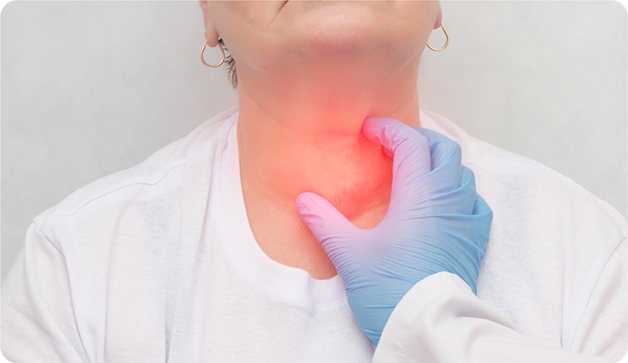Thyroid Cancer
Thyroid cancer develops in the thyroid glands. It is more commonly seen in women than in men. 90% of cases, however, are benign and can be treated. Hence, this cancer type is considered excellent survival rates.


Types of Thyroid Cancer
Depending on the type of affected cell, the thyroid cancer is of the following types
- Papillary thyroid cancer: This type of cancer develops in the follicular cells of the thyroid gland. The follicular cells are responsible for synthesizing and storing thyroid hormones. This type of cancer also Easily spreads to lymph nodes in the neck
- Follicular thyroid cancer: This type of cancer also develops in the follicular cells. It is most commonly observed above the age of 50 and can easily spread to the lymph nodes in the neck
- Medullary thyroid cancer: This type of cancer develops in the C cells of the thyroid gland. These cells are responsible for producing a hormone called calcitonin An abrupt rise in the calcitonin levels is a sign of early-stage medullary thyroid cancer.
- Anaplastic thyroid cancer: Also called undifferentiated carcinoma, this type spreads quickly in the body and is more commonly observed in ages above 60 years.






